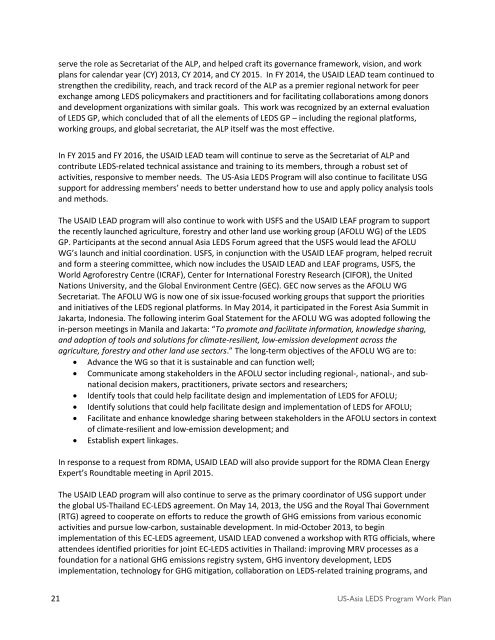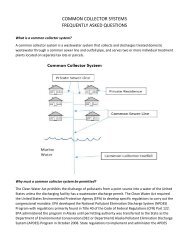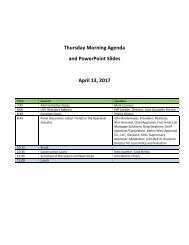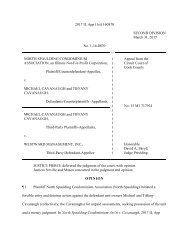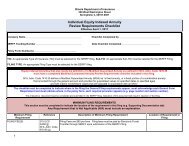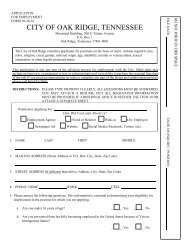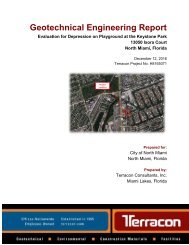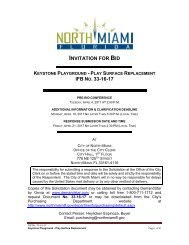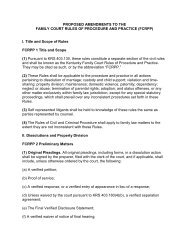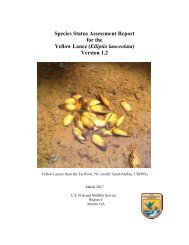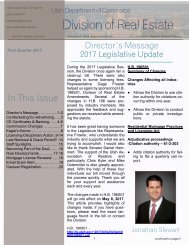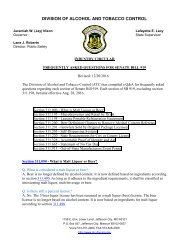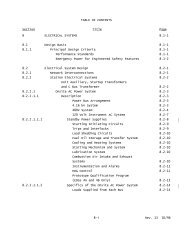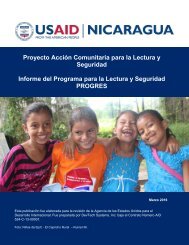ASIA LOW EMISSION DEVELOPMENT STRATEGIES (LEDS) WORK PLAN
PA00MMKZ
PA00MMKZ
Create successful ePaper yourself
Turn your PDF publications into a flip-book with our unique Google optimized e-Paper software.
serve the role as Secretariat of the ALP, and helped craft its governance framework, vision, and work<br />
plans for calendar year (CY) 2013, CY 2014, and CY 2015. In FY 2014, the USAID LEAD team continued to<br />
strengthen the credibility, reach, and track record of the ALP as a premier regional network for peer<br />
exchange among <strong>LEDS</strong> policymakers and practitioners and for facilitating collaborations among donors<br />
and development organizations with similar goals. This work was recognized by an external evaluation<br />
of <strong>LEDS</strong> GP, which concluded that of all the elements of <strong>LEDS</strong> GP – including the regional platforms,<br />
working groups, and global secretariat, the ALP itself was the most effective.<br />
In FY 2015 and FY 2016, the USAID LEAD team will continue to serve as the Secretariat of ALP and<br />
contribute <strong>LEDS</strong>-related technical assistance and training to its members, through a robust set of<br />
activities, responsive to member needs. The US-Asia <strong>LEDS</strong> Program will also continue to facilitate USG<br />
support for addressing members’ needs to better understand how to use and apply policy analysis tools<br />
and methods.<br />
The USAID LEAD program will also continue to work with USFS and the USAID LEAF program to support<br />
the recently launched agriculture, forestry and other land use working group (AFOLU WG) of the <strong>LEDS</strong><br />
GP. Participants at the second annual Asia <strong>LEDS</strong> Forum agreed that the USFS would lead the AFOLU<br />
WG’s launch and initial coordination. USFS, in conjunction with the USAID LEAF program, helped recruit<br />
and form a steering committee, which now includes the USAID LEAD and LEAF programs, USFS, the<br />
World Agroforestry Centre (ICRAF), Center for International Forestry Research (CIFOR), the United<br />
Nations University, and the Global Environment Centre (GEC). GEC now serves as the AFOLU WG<br />
Secretariat. The AFOLU WG is now one of six issue-focused working groups that support the priorities<br />
and initiatives of the <strong>LEDS</strong> regional platforms. In May 2014, it participated in the Forest Asia Summit in<br />
Jakarta, Indonesia. The following interim Goal Statement for the AFOLU WG was adopted following the<br />
in-person meetings in Manila and Jakarta: “To promote and facilitate information, knowledge sharing,<br />
and adoption of tools and solutions for climate-resilient, low-emission development across the<br />
agriculture, forestry and other land use sectors.” The long-term objectives of the AFOLU WG are to:<br />
Advance the WG so that it is sustainable and can function well;<br />
Communicate among stakeholders in the AFOLU sector including regional-, national-, and subnational<br />
decision makers, practitioners, private sectors and researchers;<br />
Identify tools that could help facilitate design and implementation of <strong>LEDS</strong> for AFOLU;<br />
Identify solutions that could help facilitate design and implementation of <strong>LEDS</strong> for AFOLU;<br />
Facilitate and enhance knowledge sharing between stakeholders in the AFOLU sectors in context<br />
of climate-resilient and low-emission development; and<br />
Establish expert linkages.<br />
In response to a request from RDMA, USAID LEAD will also provide support for the RDMA Clean Energy<br />
Expert’s Roundtable meeting in April 2015.<br />
The USAID LEAD program will also continue to serve as the primary coordinator of USG support under<br />
the global US-Thailand EC-<strong>LEDS</strong> agreement. On May 14, 2013, the USG and the Royal Thai Government<br />
(RTG) agreed to cooperate on efforts to reduce the growth of GHG emissions from various economic<br />
activities and pursue low-carbon, sustainable development. In mid-October 2013, to begin<br />
implementation of this EC-<strong>LEDS</strong> agreement, USAID LEAD convened a workshop with RTG officials, where<br />
attendees identified priorities for joint EC-<strong>LEDS</strong> activities in Thailand: improving MRV processes as a<br />
foundation for a national GHG emissions registry system, GHG inventory development, <strong>LEDS</strong><br />
implementation, technology for GHG mitigation, collaboration on <strong>LEDS</strong>-related training programs, and<br />
21 US-Asia <strong>LEDS</strong> Program Work Plan


